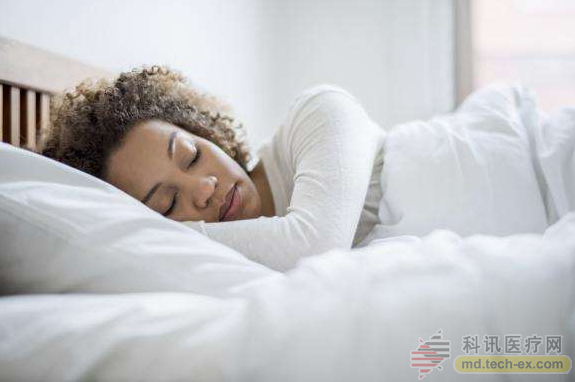Researchers have developed a new "interactive sleep application"
Release date: 2016-11-03

There are many mobile apps on the market that are designed to help people monitor their sleep patterns. Applications typically record data when people go to bed and when they wake up. Many devices use microphones and accelerometers to record nighttime noise and monitor how many people are still active.
Computer scientists and clinical psychologists at Brown University have proposed a way to further improve sleep monitoring. This method, called SleepCoacher, analyzes sleep data to generate personalized recommendations for scientific literature on sleep. SleepCoacher then guides users through self-analysis to help people find the advice that works best for them.
Dr. Nediyana Daskalova, Ph.D., said: "Our idea is not only to introduce people to their sleep information, but also to give them some control by providing advice and gradually improving their sleep plans."
Daskalova recently introduced the use of SleepCoacher at a user interface software and technology seminar in Japan. The demonstration included two small trial results from SleepCoacher users and found that 80% followed the recommendations and at least 60% of the sleep time reports improved. The team is currently developing an application that includes SleepCoacher, which they hope will be available to users early next year.
Brown and her team led the development of the SleepCoacher under the direction of Jeff Huang, assistant professor of computer science.
Our job is to guide people to understand whether data has a causal relationship, not just relevance. This is especially exciting for me, and we have a way to improve sleep for a long time, for months or even years. Because our goal is to improve our lives, this can be personalized as if you are a night owl, or you are an early riser, or you are a heavy sleeper, even if you are a need to sleep more than usual eight hours people.
For the pilot study, the team used a slightly modified commercial mobile app called Android Android. In addition to the standard monitoring features of the app, the modified version allows people to enter how they wake up in the morning, as well as other factors that may affect sleep, such as whether they drink coffee or drink during the day.
The data used by the SleepCoacher algorithm is detected by the application or reported by the participants, which is related to three key sleep outcomes: how long people sleep, how many times they wake up at night and how they feel in the morning.
When strong correlation data is detected, the algorithm generates recommendations for participants based on a collection of 117 recommended templates developed by a team of clinical psychologists and psychiatrists from the Alpert School of Medicine. These recommendations were sent via SMS to participants in the two studies, the first of which included 24 participants and the second consisted of 19 participants.
Daskalova said: "For example: a suggestion might say, we noticed that you sleep on average at 10 o'clock in the evening, but when you go to bed at 10:30 or later, the report will show that you feel worse in the morning, then we will advise you Try to go to bed at 10 o'clock.
SleepCoacher then guides the user through several mini experiments to see if the suggestion is useful. Instruct the user to follow the recommendations in a few nights and then ignore it for a few nights. By measuring the difference in sleep results when the user follows the recommendation and does not follow the recommendation, SleepCoacher determines if the recommendation is suitable for the user.
Daskalova said: "Although something is highly relevant to the outcome, it does not mean that if you change it, it will improve your sleep." Self-experiment helps us build smarter advice. As time goes by, users become more aware of themselves and are the most important.
Daskalova said: "She was surprised to see that many of the people who participated in the study had a better night's sleep."
She said: "For example, some people who sleep on time in the evening report that the next day feels better, while others report that it feels worse." The ambient noise at night is a problem for some people, but not a problem for others. It really makes a big difference, which makes this problem very interesting.
The goal of SleepCoacher's self-experimental process is to explain this change and help people develop a customized plan to improve sleep.
Daskalova said: "An important part of this approach is the clinical team from Alpert Medical School, who works in the field of sleep. The team includes Nicole Nugent, Julie Boergers and John McGeary.
Nugent said: "In addition to our clinical experience, we are also active researchers." So we can make sure that the advice from personal data matches what we get from science.
Nugent emphasized that methods such as SleepCoacher are not a substitute for clinical intervention in people with severe mental illnesses that often interfere with sleep, such as post-traumatic stress disorder or severe anxiety.
She said: "This method is really a bit remote for sleep, who wants some help." I think that a large number of Americans in the world have poor sleep hygiene, but they don't actually know. The great thing about SleepCoacher is that it allows people to notice and be aware of their sleep patterns and give them personalized direct feedback, which is consistent with the healthy sleep we know in the literature.
The code behind SleepCoacher is open source and can be found on the project's website. The team is working on a self-contained SleepCoacher app for iOS and Android, and they hope to release it on January 1. They also intend to perform a broader study of the application to test its efficacy.
Â
Http://medicalxpress.com/news/2016-11-interactive-app.html
Source: Noble
Emergency Blanket; First-aid Aluminum Foil Blanket; First-aid Blanket; Aluminum Foil Blanket; Aluminum Blanket; Foil Blanket;
Aluminum Foil Blanket,Emergency Blanket,First-aid Aluminum Foil Blanket,First-aid Blanket,Aluminum Blanket
Luck Medical Consumables Co.,LIMITED , https://www.luckmedical.com